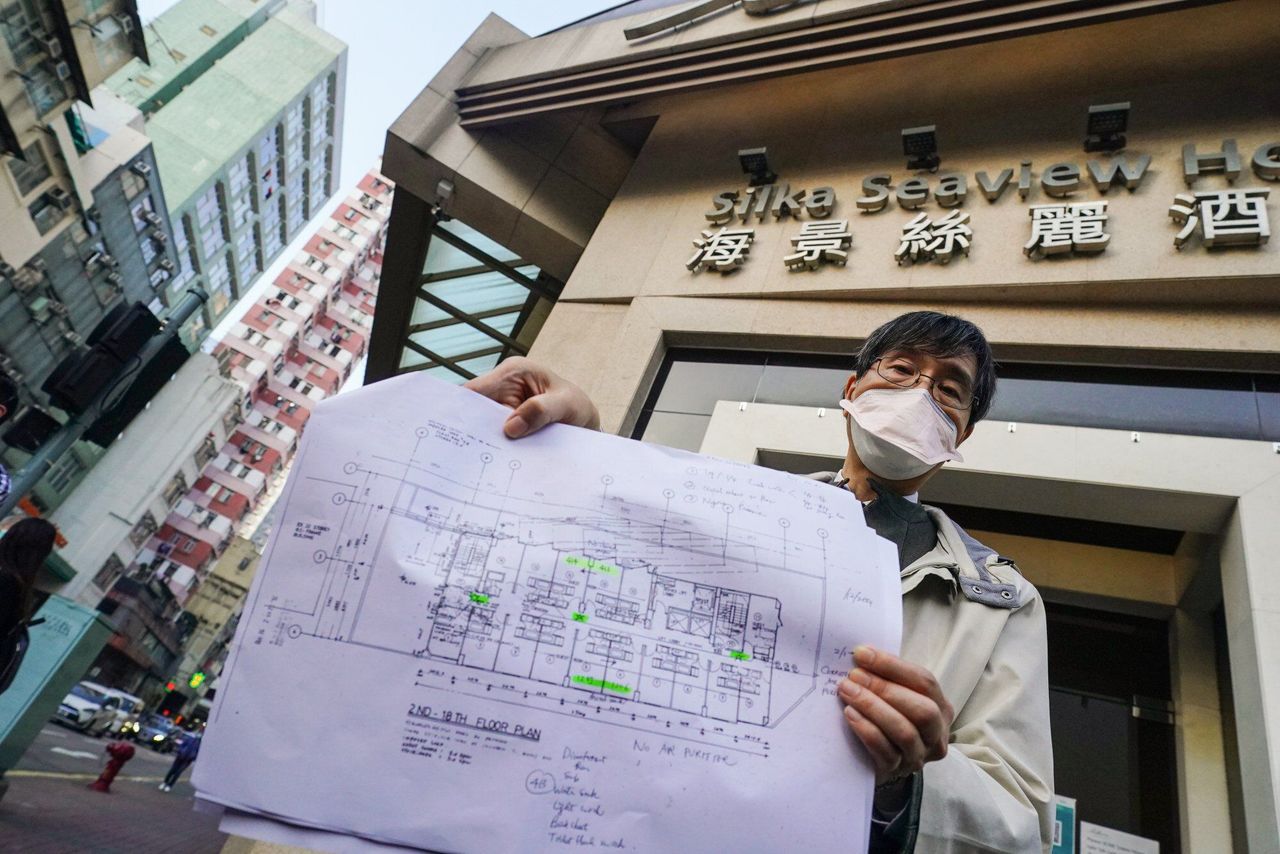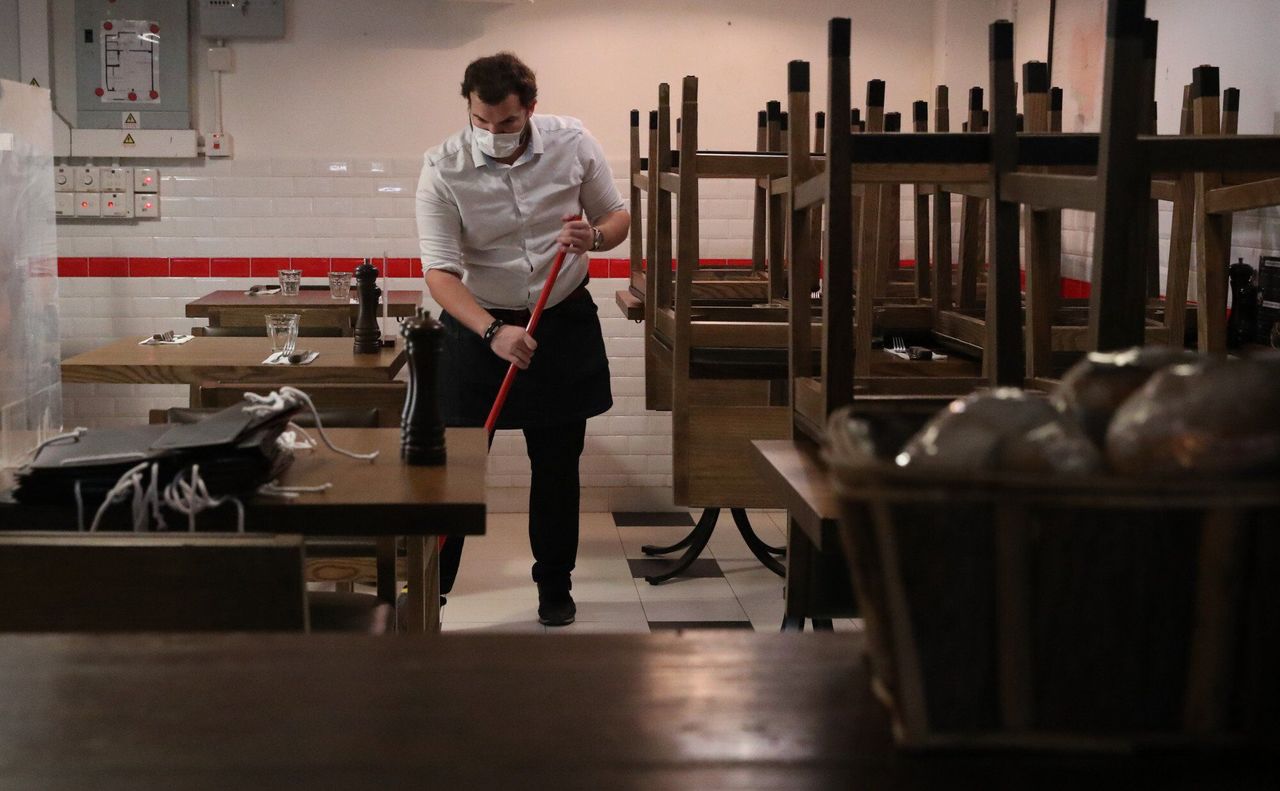The untraceable Delta case involves a woman who works at a pet shop in Causeway Bay, while the Omicron one involves a traveller who tested positive five days after completing quarantine.
Hong Kong uncovered coronavirus cases in the community involving both the Omicron and Delta variants on Sunday, one attributed to a potential cross infection in a quarantine hotel and another whose source was as yet unknown.
In the first case, a woman who had recently returned to the city from Pakistan tested positive for the coronavirus five days after completing hotel quarantine, sparking fears of a new Omicron cluster. Another patient had previously been identified in an adjacent room at the same hotel, raising the possibility that the infections were linked.
“The woman said she didn’t leave home during the five days before testing positive … but her family members did,” Dr Chuang Shuk-kwan, head of the Centre for Health Protection’s communicable disease branch, said. “We don’t rule out that she was infected in the community, but we also suspect there was a cross infection in the hotel.”
Meanwhile, a preliminary-positive case involving the Delta variant was identified in Aberdeen with no known source of infection, bringing the number of untraceable cases in the current outbreak to two. The woman was said to have worked in a pet shop in Causeway Bay called Little Boss.
Calling the two new developments a worrying sign, a leading government health adviser said the Delta infection could have been caused by an import-related case slipping into the community.
The 43-year-old woman who returned from Pakistan on December 20 had tested negative six times during her 21-day quarantine at the Silka Seaview Hotel Hong Kong in Yau Ma Tei. She returned to her home in Sham Shui Po’s Tai Hang Tung Estate on January 10 but tested preliminary-positive five days later, with the result confirmed on Sunday.
Chuang said the woman’s close contacts included her four children and her husband, who had visited unspecified places in town during the five-day period, adding that more genome sequencing needed to be done to determine whether her infection was linked to the hotel or was picked up in the community.
Chuang noted a 71-year-old man who had returned to the city from Nepal and stayed in a room next to the woman’s on the 12th floor had tested positive on January 6. His friend staying in the same room was later found to be infected as well.
“We suspect that if these two cases are related to each other there was transmission in the hotel,” she said.
She added that three cases previously reported at the hotel had involved guests on a different floor who were also staying in adjacent rooms. The results of their genome sequencing were highly similar. A total of six guests at the hotel have been identified as infected this month.
“We suspect there were transmission risks involving these four rooms on two separate floors. The staff of the hotel have to undergo compulsory screening,” she said.
University of Hong Kong microbiologist Professor Yuen Kwok-yung, who joined the Centre for Health Protection’s investigation at the hotel on Sunday, said poor ventilation in the rooms might have resulted in cross infections on floors four and 12.
He also noted that in the case of the previous infections on the fourth floor, there had been an instance in which the occupant of one room opened their door to pick up supplies some 30 seconds before their neighbour did the same.
“Tests on the spot showed it was possible the air could go from [one room to the other] through the doors,” he said. “There are three air purifiers in the corridors, but there is no air purifier in the rooms. But we were told that they would be installed from [Monday].
“The air purifiers in the corridors were set to auto mode. That is, when the air is detected cleansed, the purifiers will go to sleep or not run at full power. We have advised the hotel management against running the air purifiers in auto mode.”
To play it safe, Yuen recommended that guests in 24 rooms next to or across the hall from the ones that saw infections spend an additional 14 days in quarantine.
He added that it was still safe for the Silka Seaview to be used to quarantine close contacts of Covid-19 patients from Monday, noting that if the ventilation improvements were made, “the issue should be properly addressed”.
 Microbiologist Yuen Kwok-yung speaks to the press after visiting Silka Seaview Hotel on Sunday.
Microbiologist Yuen Kwok-yung speaks to the press after visiting Silka Seaview Hotel on Sunday.
Sunday’s 11 confirmed infections took the city’s overall tally since the pandemic began to 13,041, with 213 related deaths. Fewer than 10 preliminary-positive cases were also recorded, including the untraceable local case involving the pet shop saleswoman.
The 23-year-old, who had a high viral load, cleaned animal cages at the shop and interacted with customers.
She developed a sore throat and cough last Tuesday but did not test preliminary-positive until after she submitted samples on Friday.
“There may be a Delta strain circulating; [the outbreak] is not only restricted to the Omicron cases we detected recently,” Chuang said. “We are very worried there are other sources of infection that haven’t been detected.”
About 10 of the woman’s close contacts, including her colleagues and friends who had meals together, were sent to quarantine. The woman had also visited two other restaurants and stayed one night at a hotel in Wan Chai. In total, six places she visited were included in the latest compulsory testing notice.
Health authorities on Sunday staged a lockdown where the woman lives on Tung Sing Road in Aberdeen so testing could be carried out.
Professor David Hui Shu-cheong, a government pandemic adviser, urged the authorities to conduct genome sequencing to see whether the case matched previously recorded imported ones.
“It’s possible that an imported case involving the Delta variant was ‘leaked’ and entered the community. We have to be really cautious if this is the case,” Hui said, noting the city had not recorded a local Delta case for some time.
“Currently the Delta variant is still common in the United States, but further genetic sequencing needs to be done to determine which country the variant of that patient is from.”
So far, Hong Kong’s fifth wave has not brought the exponential explosion of cases many had feared, but health minister Sophia Chan Siu-chee warned on Sunday that even if the outbreak was under control, current social-distancing measures would not be fully relaxed after Lunar New Year.
Instead, Chan said, a gradual approach was planned to ensure the long-awaited reopening of the border with mainland China, adding that easing the measures would depend on such figures as the coronavirus’ reproduction rate and the number of confirmed cases in the city, while venues would need to check patrons’ vaccination status.
 Sophia Chan has warned that social distancing rules, such as a ban on
evening dine-in services in restaurants, will not be fully relaxed after
the Lunar New Year.
Sophia Chan has warned that social distancing rules, such as a ban on
evening dine-in services in restaurants, will not be fully relaxed after
the Lunar New Year.
“The overall principle [of relaxing the rules] is that the pandemic situation must be better than now. It will be a gradual relaxation and a more prudent approach,” she told a television programme.
“We understand that restaurants are expecting the resumption of dine-in service; this will be the top priority.”
Chan also said the government would not be abandoning its long-held zero-Covid approach – as much of the rest of the world has done – so as to leave nothing to chance when it came to reopening the border.
The government had previously announced that social-distancing rules, including a ban on evening dine-in service in restaurants and the closure of 15 types of premises, including bars, gyms and beauty parlours, would be extended until at least February 4, through the Lunar New Year holiday.
Separately, authorities have temporarily banned Hong Kong Express Airways from operating flights to the city from Bangkok after it was found to have violated local rules for airlines. The suspension will last until January 29.















